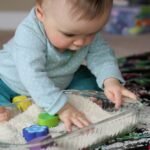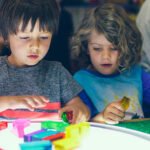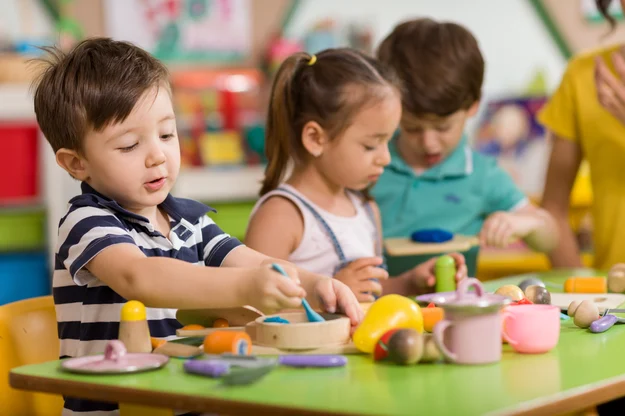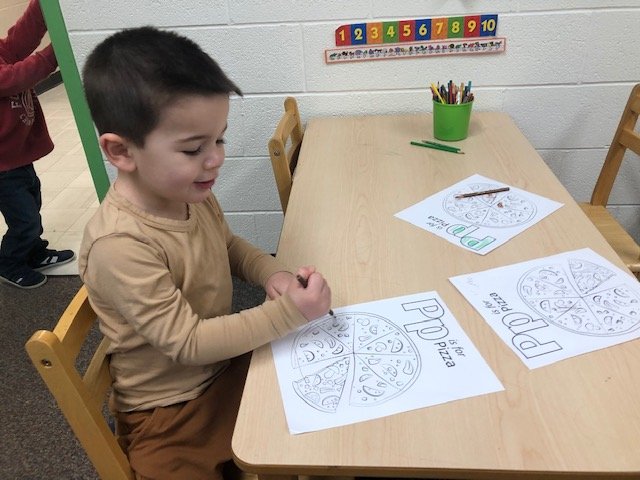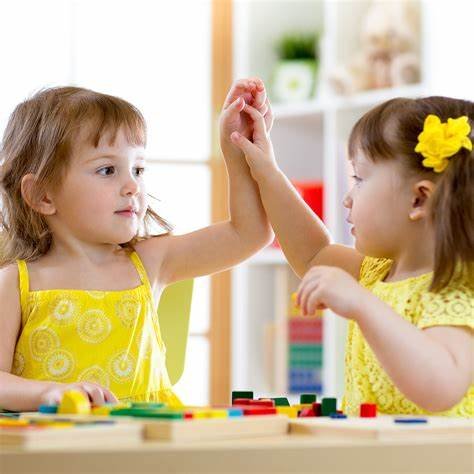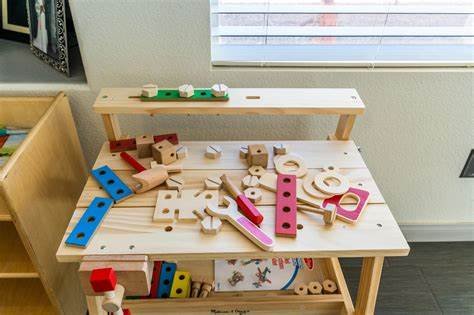In early childhood education, play is not just a way to pass time—it’s an essential learning tool. Play-based learning in preschools is a dynamic, engaging approach that encourages children to explore, discover, and learn at their own pace. Through play, children gain foundational skills that set the stage for future learning and success. But why is play-based learning so crucial for preschoolers, and how does it shape their development?
What Is Play-Based Learning?
Play-based learning refers to an educational approach that uses play as the primary mode of learning. It’s a child-centered method where children explore new concepts, ideas, and skills through activities that are fun and engaging. Rather than focusing solely on structured lessons, play-based learning encourages curiosity, creativity, and hands-on experiences.
There are two main types of play in early childhood education:
- Free Play: Children choose their own activities, exploring and interacting with their environment.
- Guided Play: Educators provide activities or scenarios, but children still lead the exploration, making decisions and solving problems on their own.
Both types of play help children develop a variety of skills, making them crucial to a well-rounded preschool education.
Why Play-Based Learning Matters
1. Promotes Cognitive Development
Play allows preschoolers to experiment with concepts like numbers, shapes, and colors in a practical context. Through play, they can work on problem-solving, critical thinking, and understanding cause and effect. For example, when building a block tower, a child learns about balance and spatial relationships. When using toys to represent real-life objects, they practice cognitive flexibility and symbolic thinking.
Examples of Cognitive Skills Developed Through Play:
- Memory: Remembering where objects are placed or what happened in a game.
- Attention: Focusing on tasks during a pretend play session.
- Reasoning: Figuring out how to solve puzzles or complete building structures.
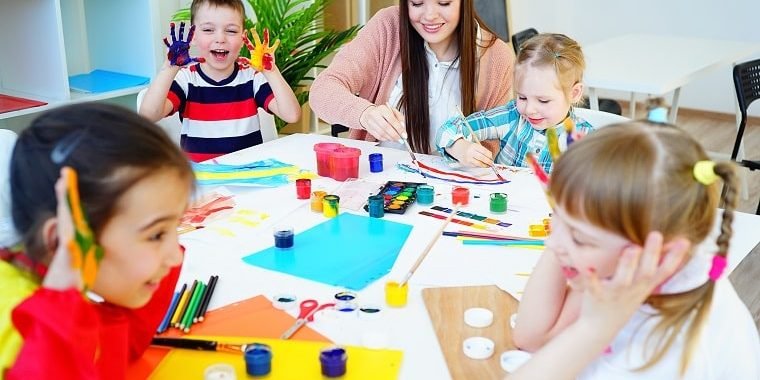
2. Fosters Social and Emotional Skills
In play-based learning environments, children often interact with their peers, which is key to developing social skills like sharing, taking turns, and communicating. During group play, children learn how to negotiate, collaborate, and resolve conflicts—skills they will use throughout their lives. Play also helps children express and understand emotions, promoting emotional intelligence.
Social and Emotional Skills Developed Through Play:
- Empathy: Understanding others’ feelings during role-playing activities.
- Self-regulation: Learning to control impulses and behavior during group play.
- Cooperation: Working together on projects, such as building a sandcastle or completing a puzzle.
3. Enhances Language and Communication Skills
Play-based learning encourages children to use language in a natural, enjoyable context. Whether they’re engaging in pretend play, storytelling, or simple conversations with peers, they expand their vocabulary and language comprehension. Play offers numerous opportunities for children to practice verbal communication, listening skills, and social language—key components of early literacy development.
Language Skills Developed Through Play:
- Vocabulary: Using new words while interacting with toys and games.
- Storytelling: Creating narratives during pretend play.
- Listening and Speaking: Engaging in back-and-forth conversations with peers and adults.
4. Develops Physical Skills
Many forms of play require physical activity, which helps develop fine and gross motor skills. Activities like building with blocks, drawing, or playing with playdough strengthen hand-eye coordination and fine motor control. Outdoor play with activities like running, climbing, or playing ball helps develop gross motor skills and overall physical health.
Physical Skills Developed Through Play:
- Fine Motor Skills: Building with blocks, drawing shapes, or manipulating small objects.
- Gross Motor Skills: Running, jumping, and climbing during active play.
- Coordination: Hand-eye coordination when playing with puzzles, beads, or construction toys.
5. Encourages Creativity and Imagination
Through role-playing, storytelling, and constructing imaginative worlds, children enhance their creativity. Play-based learning encourages children to think outside the box, come up with innovative ideas, and explore different roles. This creativity is vital not only for artistic expression but also for problem-solving and thinking in unconventional ways.
Creative Skills Developed Through Play:
- Imagination: Pretend play, like pretending to be a chef or doctor, builds imagination.
- Problem-Solving: Finding creative solutions to challenges during play (e.g., solving puzzles).
- Innovation: Coming up with unique ways to use everyday objects for new purposes.
The Role of Educators in Play-Based Learning
Educators play a vital role in guiding and enhancing play-based learning. They observe the children’s interests and introduce activities that foster growth in specific developmental areas. By creating an environment filled with stimulating materials and offering appropriate guidance, educators ensure that play-based learning is not just fun, but also meaningful and educational.
How to Support Play-Based Learning at Home
Parents can play a key role in supporting play-based learning at home:
- Provide Play Materials: Keep toys, art supplies, and outdoor equipment available for spontaneous play.
- Encourage Open-Ended Play: Choose toys that inspire creativity, like building blocks, dress-up clothes, or art materials.
- Join in the Fun: Participate in pretend play, games, or outdoor activities to encourage collaboration and communication.
- Observe and Learn: Pay attention to your child’s interests and support activities that spark their curiosity.
Conclusion
Play-based learning is not just an enjoyable part of preschool—it’s essential for a child’s overall development. Through play, children learn cognitive, social, emotional, physical, and creative skills that provide a strong foundation for lifelong learning. By fostering a playful and interactive environment, preschool educators and parents can help children grow into confident, curious, and capable learners.




